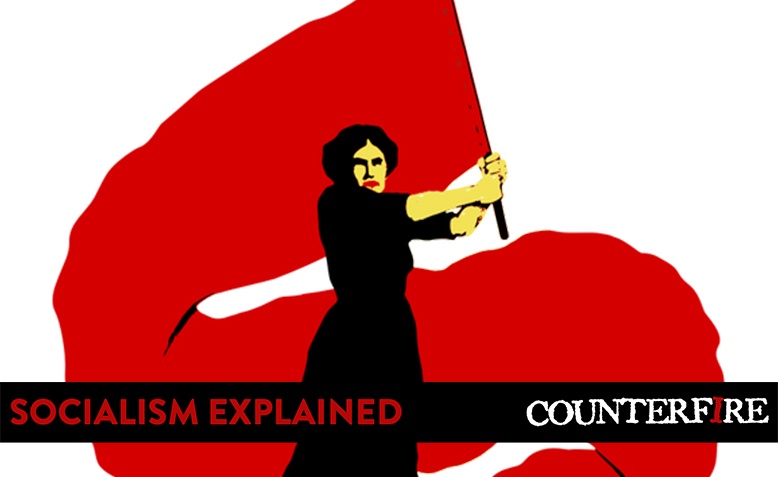 Photo: Public Domain
Photo: Public Domain
In the first of a series of socialist explainers, Chris Nineham looks at the concept of socialism itself
Counterfire’s Socialist Explainers series
Socialism is the idea that working people should organise society collectively and democratically in the interests of the majority. It is based on two insights about the modern world. One, that we can produce enough to satisfy everyone’s needs. Two, that working people, the overwhelming majority around the globe, have an interest and ability to create a world that is fair, sustainable, and free of all oppression and coercion.
The idea arose in the nineteenth century after it became clear that despite the egalitarian ideas of the French Revolution, emerging capitalism was based on the brutal exploitation of working people by a tiny elite. Capitalism brought unimaginable wealth for a few but misery and poverty for the majority.
At first socialism took the form of utopian plans imagined by visionary individuals. As capitalism developed, working people built their own organisations, raised their own demands and began to struggle for radical change.
In Britain, the Chartists fought for the vote from the 1830s to try and secure a society based on equality, the nationalisation of industry and land, and free education for all.
Marx and Engels built on this experience and that of the great capitalist revolutions. They argued that it would take popular uprisings to dismantle capitalism and create an equal, free society.
For them a revolutionary movement was necessary not just to overcome the capitalists’ resistance to change but also to prepare people for a new society. Socialism had to be participatory, ‘The emancipation of the working class is the act of the working class’.
The Paris Commune of 1871 bore this out. For over two months the working people of Paris took over their city and ran it themselves with new, highly democratic institutions in which women played a leading role.
The carnage of World War 1 caused a deep crisis and helped generate mass socialist movements across Europe and around the world from Mexico to China. Workers took power in Russia for the first time in 1917. In Germany a revolution brought down the monarchy and workers’ councils sprung up around Europe.
Tragically, the revolutionary upsurge after World War 1 was contained and defeated. After missed opportunities in the West, fascist governments crushed working class movements in Italy, Spain and Germany. In Russia, Stalin destroyed the revolution, dismantled workers democracy and imposed a state-capitalist order.
But socialism has remained the great aspiration of working people. Over the last hundred years there have been scores of workers’ uprisings around the world and left wing governments have been elected in country after country. Many of these governments have made important changes; introducing welfare states, free education and childcare services, health provision and so on, making life more bearable for working people.
But nowhere have they been able to deal with the central issue that capitalist production is run for profit by a handful of big corporations, with all the inequality, suffering and environmental chaos that involves.
Socialism means turning the world upside down. It means working people taking control to liberate humanity not just from poverty and hunger but from the misery of forced labour in the factories and offices of the big corporations. It means bringing to an end the horrors of war and competition between nations. It means overturning sexual oppression and destroying the virus of racism. It means unleashing the creativity of ordinary people to solve the world’s problems and build a sustainable society in which we can all express ourselves and flourish. It means turning into reality Marx’s famous phrase that ‘the liberation of one is dependent on the liberation of all.’ It will only be achieved by the active mobilisation of millions.
 Now part of a published collection of socialist explainers.
Now part of a published collection of socialist explainers.
Before you go
Counterfire is growing faster than ever before
We need to raise £20,000 as we are having to expand operations. We are moving to a bigger, better central office, upping our print run and distribution, buying a new printer, new computers and employing more staff.

